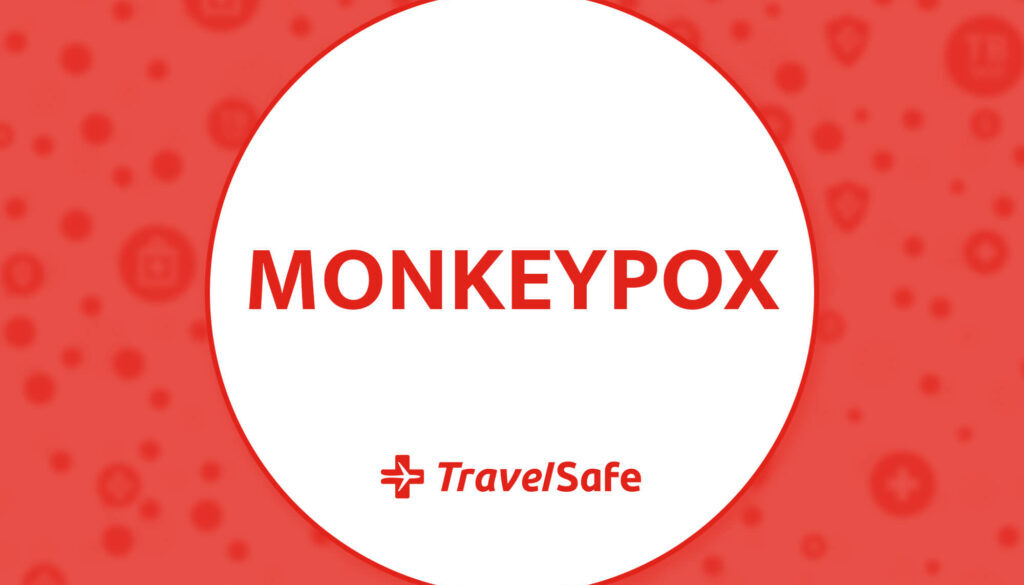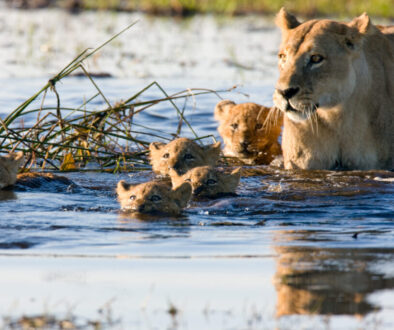Monkeypox and Travel
On July 25, 2022, the World Health Organization (WHO) declared monkeypox a global health emergency. As of August 1, 2022, the US Centre for Disease Control (CDC) has reported more than 23,000 cases of monkeypox from80 countries worldwide, and these numbers are expected to rise. What does this mean for travellers? Here are some questions answered about monkeypox including what you need to know if you are planning travel during the global monkeypox outbreak.
What is monkeypox and where is the risk?
Monkeypox is caused by an orthopoxvirus that is similar to smallpox. The virus was discovered in monkeys in 1958 and the first human case was identified in humans in 1970 in the Democratic Republic of Congo (DRC). Monkeypox is endemic in this country (endemic means a disease is regularly present among a certain place or population of people), and cases have been increasingly reported in several West and Central African countries since 2016. There has been a higher number of cases in 2022 than what is normally seen in Nigeria, the DRC, and the Central African Republic. The current global outbreak of monkeypox involves 80 countries worldwide where the monkeypox virus has not been seen before, including countries in Europe, the Americas, Africa, the Western Pacific, and the Eastern Mediterranean. The current outbreak is not typical of previous outbreaks that have occurred before.
How does monkeypox spread?
Monkeypox does not spread easily from person to person. The most common way that monkeypox spreads is through direct contact with the rash or scabs of an infected person. It can also be spread through respiratory droplets from coughing or sneezing during close face-to-face contact with an infected person, or through blood and bodily fluids. Transmission is also possible through direct contact with contaminated objects, such as bedding, clothes, or towels that have the monkeypox virus on them. Historically person to person transmission was rare and the disease was usually spread from animals to humans when touched, bitten or scratched by an infected non-human primate or rodent, from eating contaminated bush meat, or from touching contaminated animal products such as skins, meats, or animal bedding.
What are the symptoms?
The strain of monkeypox involved in the current outbreak tends to cause mild illness. Symptoms of monkeypox usually begin 7 to 14 days (and up to 3 weeks) after being exposed. The first phase of illness typically includes fever, headache, muscle aches, swollen lymph nodes, and fatigue. This is followed by a second phase of illness 1-3 days later which includes a rash on any part of the body, including genital areas. The rash could be anywhere from one lesion to several thousand. Some people develop a rash without having any other symptoms. The blistering rash usually lasts about 2-4 weeks before scabbing. The disease is contagious until the scabs fall off and a fresh layer of skin appears. If you have any symptoms of monkeypox you should isolate immediately and contact your health care provider.
Is there treatment for monkeypox?
Symptoms usually resolve on their own after 2-3 weeks. There is no specific treatment available for monkeypox. Medication can be taken to help with pain or fever. It is important for people with monkeypox to stay hydrated, rest, and eat well. Some people may be at higher risk of serious illness from monkeypox, including newborn babies, children, pregnant women, and those who are immune compromised.
What do we know about the current outbreak?
The current monkeypox outbreak is not typical of previous outbreaks that have been seen before. In this current outbreak most (but not all) cases are occurring among men who have sex with men who have had recent sexual contact with a new partner. Fewer symptoms are also being reported than what has typically occurred in the past.The WHO reports that as of July 11th there has been no link found to infected animals, and no clear link between most cases and travel from previously affected African countries, although cases associated with recent travel to other regions in the world are common during this outbreak.
What does it mean that monkeypox has been declared a global health emergency?
There is a list of criteria under the International Health Regulations (IHR) considered by the WHO when deciding if a disease outbreak constitutes a global health emergency. The current monkeypox outbreak was declared a global health emergency because it is an outbreak that is rapidly spreading worldwide through new modes of transmission which is not entirely understood. The aim is to raise international awareness about monkeypox among people who are most at risk and provide advice on how to stop it spreading between people.
Monkeypox and travel
The overall risk of monkeypox when travelling is low as the disease does not spread easily from person to person. Be aware of the monkeypox situation in your destination country and take the same precautions you would use at home. The majority of cases of monkeypox in the current outbreak are occurring in those how have reported close or intimate contact with a person who is infected with monkeypox.
To find out if your destination country has been affected by monkeypox check the US CDC Monkeypox Global Outbreak Map
Travel restrictions
The Public Health Agency of Canada has issued a level 2 advisory for travel to countries where monkeypox is a risk. A level 2 advisory indicates that there is an increased risk to travellers and reminds them to practice enhanced health precautions.
Keep in mind that your destination country may have put procedures in place to limit the spread of monkeypox, such as isolation, should you become infected. The Public Health Agency of Canada cautions that you may have limited access to timely and appropriate health care should you become sick and could experience delays in returning home.
If you develop symptoms of monkeypox while travelling or after you return home, isolate immediately and contact your health provider. If you develop symptoms during your flight, tell the flight attendant before you land or the border services officer when you enter the country, and a quarantine officer will be notified to assess your symptoms. Wear a well-fitted medical mask at all times during your flight.
Preventing monkeypox
To reduce the risk of becoming infected with monkeypox:
- Be vigilant or avoid large gatherings that involve close, prolonged, and frequent interactions with people (especially sexual contact).
- Avoid close physical contact, including sexual contact, with people who are infected or may be infected with monkeypox.
- Wash your hands often with soap and water for at least 20 seconds, or use a hand sanitizer with at least 60% alcohol when soap and water is not available.
- Keep your hands away from your eyes, nose, and mouth.
- Disinfect high-touch surfaces and objects.
- Avoid kissing, hugging, or sharing eating utensils or cups with others.
- During sexual activity use condoms, practice safe sex, and limit your number of sexual partners.
- Avoid touching live or dead wild animals such as rodents and non-human primates while travelling or eating products that come from these animals. Avoid touching materials that have been used by these animals, such as bedding.
- Get vaccinated against monkeypox if you are at higher risk of becoming infected.
Monkeypox vaccine
People who were vaccinated against smallpox may have some protection against monkeypox. Routine vaccination against smallpox stopped in Canada in the 1970’s so younger people are unlikely to have been vaccinated. The smallpox vaccine is not 100% effective and protection may have waned over time so those who have been vaccinated against smallpox should still take precautions to protect themselves against monkeypox.
A monkeypox vaccine called Imamune is authorized for use in Canada in adults who are 18 years of age and older at higher risk of being exposed to monkeypox. The monkeypox vaccine is not recommended for travel and is not available at any travel clinic, including TravelSafe Clinic. In BC, there is a limited supply of the vaccine available through the BC Centre for Disease Control for individuals at higher risk of being infected with monkeypox.
Eligible individuals are transgender people or those who self-identify as belonging to the gay, bisexual and other men who have sex with men community and answer yes to any of the following questions:
- Have received a diagnosis of chlamydia, gonorrhea, and/or syphilis in the past 2 months, OR
- Have had two or more sexual partners in the last 21 days, OR
- Have attended bath houses, sex clubs, or park play, or are planning to OR
- Have had anonymous sex in the past 21 days (i.e., using apps, online sites, formal/informal gatherings) or are planning to OR
- Engage in sex work or plan to, either as a worker or client
The monkeypox vaccine is given by injection as a single dose. A second dose may be recommended 4 weeks after the first dose if you are at ongoing risk of exposure.
To learn more about monkeypox in BC or to book an appointment if you are eligible for the monkeypox vaccine visit the BCCDC website.



